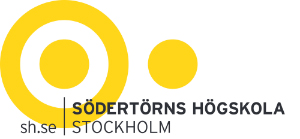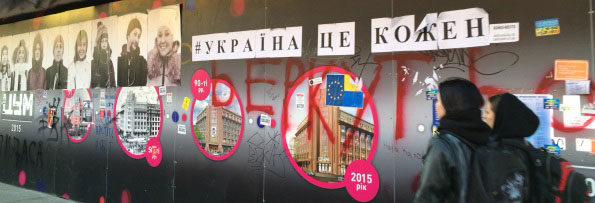One year after Maidan, Ukraine needs empathy more than weapons
It’s been a year since Ukrainians took to the streets to protest, fight and die under the European flags alongside their national banners. The protest won. But the more time passes, the more it becomes obvious just how much trauma was inflicted on these people by violence during the later stages of Maidan, by loss of the established borders of the country and by war in two Eastern regions. So it makes sense to check up the current situation in the relations between Ukraine and Europe from the perspective of psychology and emotions.
I don’t mean any kind of systematic research or scientific psychology – they are yet to pay their attention to Maidan, and I’m no psychologist myself. I mean very practical, very common, very everyday kind of psychology that lay people enjoy so much (including myself). Let’s look at the current feeling between Ukraine and Europe as if this is a popular magazine rather than a research blog.
Every time I read an international article from the Ukrainian media, scroll through my Facebook newsfeed, talk to someone from Ukraine, it’s there: disappointment and anger. Ukrainians – and I’m speaking from the Ukrainian side; someone else has to take it up from the other one – are upset about the amount of support they receive from Europe and the way it’s done. Every time the Russian army units go “on vacation” into Donbas, every time the Kremlin-sponsored rebels launch an attack on the nearly flattened Donetsk airport, every time people die, the Ukrainians hear that the EU is “deeply concerned”. Those “deep concerns” have become a joke in Ukraine.
Ukrainians are told they will never on Earth receive weapons from the West. They are told they can’t count on joining the EU not even anytime soon but ever. They hear foreign ministers and presidents of states lambasting them for “the civil war” they never wanted and suggesting they are a natural part of Russia’s sphere of influence. All of a sudden, everyone’s an expert on how much Ukrainian and Russian languages differ. All of a sudden, everyone’s an expert on the history of Ukraine and Russia. Everyone’s an expert on why the war has started.
The Ukrainian anger at some Europeans and even entire European states is understandable – it’s because Ukrainians are grumpy, whimsical and ungrateful. Their state is near bankrupt and largely supported by Western nations through the IMF. The EU does provide tangible support to the country and its army, both material and non-material support (such as in a recently launched SIDA project on sharing the Nordic experience of decentralisation – just one example out of dozens). Finally, Europe does say it is concerned, which isn’t nothing, and it imposed the sanctions on Russia that have recently visibly decreased Moscow’s willingness to keep harassing its neighbour while it is desperately trying to break out of the curse of its history. So complaining about the lack of the European support is in reality counter-productive and highly emotional.
But, as we know from Hannah Arendt, emotional is not the opposite of rational. The opposite of rational is irrational, while emotions could well be reasonable in every way. Such is the Ukrainians’ sadness at receiving less support from Europe than they want to see. It’s not just about the amount – it’s about the kind of support they need. There’s not enough solidarity, not enough compassion.
When Ukraine is asking for weapons or tougher action on Russia, it asks not only and perhaps not so much for weapons and sanctions as it asks for a sign of solidarity and empathy that isn’t seen much. Let’s be honest: for most Europeans, Ukraine is far far far outside their lifeworld; for many it’s an undesirable problem out of nowhere, an insignificant something between them and Russia that has made dealing with Russia more problematic. Every little step towards Ukraine is accompanied with maybe not so numerous but very loud voices. Voices from the left that want a strong Russia to kick America’s butt. Voices from the populist right that want a strong Russia to help them get rid of the hateful Brussels, migrants and LGBT. Voices from the centre that want to keep trading gas, to hell the world.
And for Ukrainians, every hesitation, every sign of the European reluctance to intervene and/or confront the aggression is read as indifference and betrayal of the values Europe has given the world. From their perspective, it sends the message: “You’re not that important. We don’t care about you”.
The same message is sent when some craziest stories from Russian propaganda are repeated by Europeans, or simply not confronted. It’s a sign there’s a tiny possibility the world may adopt the other perspective and accept the lies about Ukraine as the truth. For Ukrainians who have had to confront it permanently throughout the last century, it’s extremely traumatic. Europeans want to be rational and critical and careful – but this is misread as a bad kind of doubt.
Take MH17. It’s perfectly understandable why the investigation is advancing so slowly and no one has been clear on who did it and what the consequences should be. Too much is at stake; there’s no chance for mistake. But the very idea that a conspiracy theory postulating it was Ukraine who shot the airliner down is taken at the same level of credibility as the obvious is emotionally offensive for Ukrainians.
Too silly, too emotional, too much for politics? True, but in the same way an abused women can be explained as “too emotional”. And showing empathy towards a victim is, as we know, silly for serious gentlemen and ladies who do serious stuff. This isn’t too liberal a simile: the trauma inflicted on this country is too large.
What they need now is a friend, and a friend is not someone who criticises you but someone who reaffirms you. They don’t need doubt, they need a shoulder. They need a message that says: “It’s okay. It’s gonna be fine, we help you. We don’t just say it, we do it. We’re by your side. We know you’ve been told terrible lies about and we don’t trust a single world. You’re one of us, we’re with you”.
Should European actors seek a better understanding with someone who is already their friend instead of trying to make peace with their open enemy, they might care about symbolic actions that would send precisely this message.

